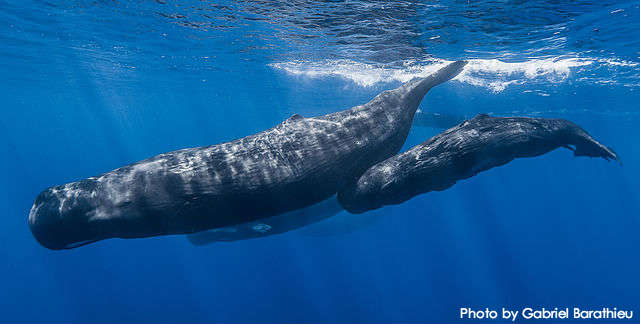For Immediate Release
CONTACT:
Joanna Nasar
Director of Communications
Turtle Island Restoration Network
Cell: (415) 488-7711
Joanna@SeaTurtles.Org
California’s Driftnet Fishery One of Worst in the Nation for Marine Mammals
Olema, Calif. (January 19, 2016) – Turtle Island Restoration Network’s new report ‘Driftnet Overview’ outlines how the California driftnet fishery for swordfish is among the most wasteful fisheries in the world in terms of bycatch (unwanted animals caught and discarded). The just-released-report examines new data that shows the driftnet fishery is a threat to marine mammals, sea turtles and sharks; targets toxic high-in-mercury fish; is a drag on California’s economy; and hampers efforts to clean up international fishing practices.
“California’s driftnet fishery kills more whales and dolphins than any other on the West Coast, and that is too high a price to pay for swordfish dinner, and it is time to phase it out,” said Todd Steiner, biologist and executive director of Turtle Island Restoration Network (SeaTurtles.Org), which has worked for over a decade to reduce wildlife deaths in this and other fisheries.
The driftnet fishery in California consists of roughly 20 fishing vessels. The vessels set out nets the size of the Golden Gate Bridge to float overnight and indiscriminately catch whatever swims into their nets.[1] The California driftnet fishery kills or injures approximately seven times more whales and dolphins than all other observed fisheries in California, Oregon, Washington, and Alaska combined, and 13 times more than any other single observed fishery on the West Coast.[2]
The fishery has killed an estimated 16 endangered sperm whales in the last decade. Recent stock assessments suggest that this take is more than the population can sustain from all sources combined, much less from a single fishery.[3] In total, an estimated 885 marine mammals have been killed in the past decade alone. [4]
“This deadly fishery has been operating at too high of a cost to marine wildlife, our economy and our health for far too long. It is time to shut down the driftnet fishery once and for all,” said Joanna Nasar, Communication Director for Turtle Island Restoration Network.
Driftnets are already banned by the United Nations, on the high seas, by a host of countries, and throughout the United States. Turtle Island’s new report shows that it is time for California to phase out this outdated and ineffective method.
“This report calls for the phase out of this deadly fishery which is killing too many whales, dolphins, sea turtles and sharks, and provides critical information to lawmakers to act,” said Doug Karpa, legal program and science policy director at Turtle Island.
Download the Driftnet Overview Report here (.pdf).
###
Turtle Island Restoration Network works to mobilize people and communities around the world to protect marine wildlife, the oceans and the inland waterways that sustain them. Join us on Twitter, Facebook and YouTube. SeaTurtles.Org
References:
[1] i. 50 C.F.R. § 660.713, and Stock Assessment and Fisheries Evaluations (SAFE) Report, Pacific Fisheries Management Council, available at http://www.pcouncil.org/highly-migratory-species/stock-assessment-and-fishery-evaluation-safe-documents/current-hms-safe-document/
[2] NOAA Observer Program data, http://www.westcoast.fisheries.noaa.gov/fisheries/wc_observer_programs/sw_observer_program_info/data_summ_report_sw_observer_fish.html
[3] NOAA Observer Program data http://www.westcoast.fisheries.noaa.gov/fisheries/wc_observer_programs/sw_observer_program info/data_summ_report_sw_observer_fish.html and 2012 Stock Assessment Report, Sperm Whale California/Oregon/Washington Stock, http://www.nmfs.noaa.gov/pr/pdfs/sars/po2012whsp-cow.pdf
[4] See high priority species bycatch per set, from Highly Migratory Species management Team Report on Swordfish Fishery Management and Monitoring Plan including Management Alternatives,Table 13, Agenda Item E.3, June 2015 PFMC Meeting, available at http://www.pcouncil.org /wp-content/uploads/2015/05/E3a_HMSMT_Rpt_HardCaps_JUN2015BB.pdf




